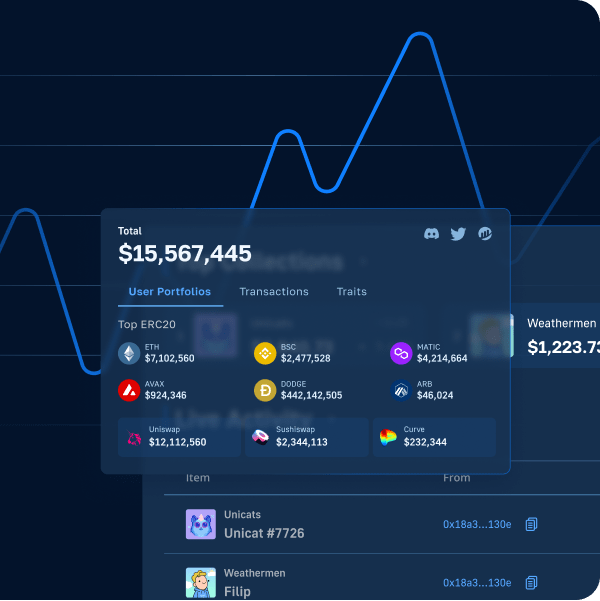Are you currently navigating the dynamic space of blockchain API providers and searching for the best Alchemy alternatives? To help in this endeavor, we will compare Moralis, Alchemy, and QuickNode in this article to see how these providers stack up against each other. As we do so, we’ll use their respective Web3 APIs to build a portfolio view of Vitalik Buterin’s ERC-20 tokens. This will allow us to systematically compare the accessibility, cost-effectiveness, and efficiency of each provider when it comes to fetching the same on-chain resources. If you’d like a sneak peek of the results, check out the charts below:
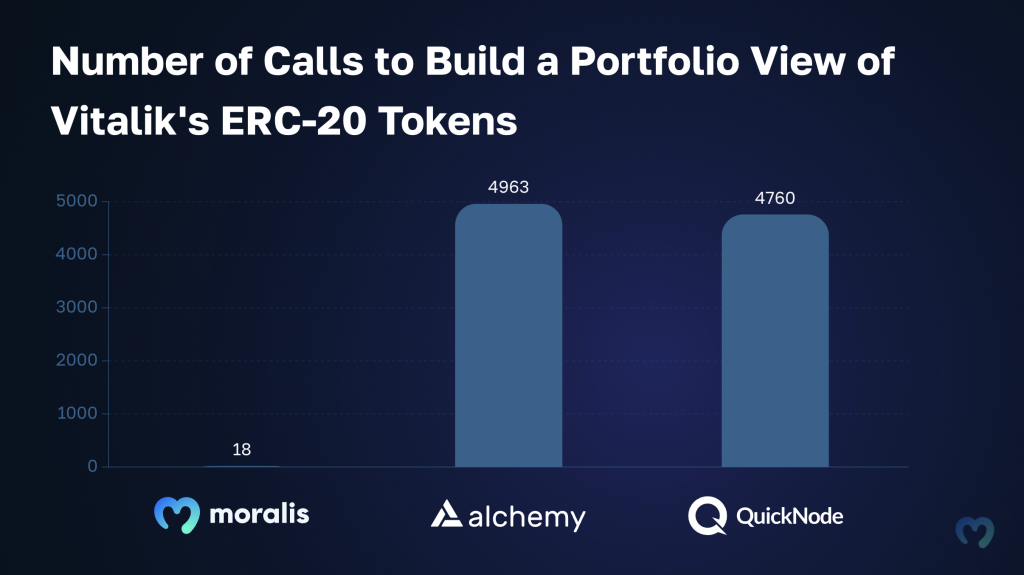
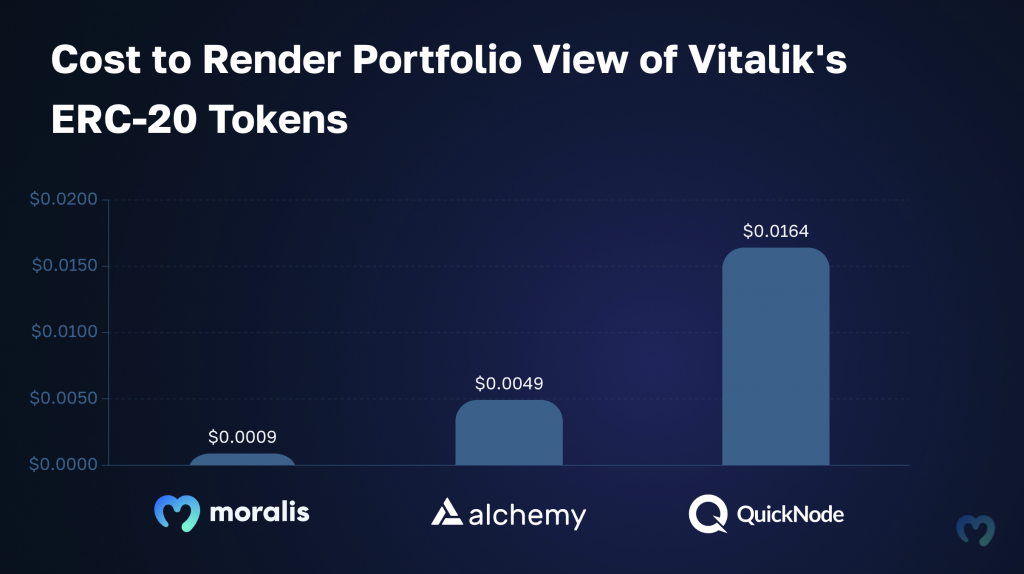
If you look at the charts above, you’ll quickly notice that Moralis clearly stands out as the industry’s leading blockchain API provider in terms of cost-effectiveness and the number of API calls needed to fetch portfolio data. And while this is just an example, it highlights the benefits of using Moralis. However, if you’re looking for a more detailed insight, join us in this guide as we break down the results further.
Also, if you want to start leveraging the industry’s premier APIs immediately, you should know that you can sign up with Moralis today for free. Doing so gives you instant access to our suite of Web3 APIs, allowing you to start building decentralized applications (dapps) faster and more efficiently today!
Leading Web3 APIs?
Overview
While Alchemy is a prominent API provider within the space, it might not be the best option for your development needs. So, what are the best Alchemy alternatives? Also, which Web3 API provider should you opt for? If you’re looking for the answers to these questions, join us in this article as we explore and compare Moralis, Alchemy, and QuickNode to highlight their differences!
Whether you’re building a new project from scratch or want to improve an existing app, this read is for you. Let’s dive straight into it!
What is Alchemy?
Alchemy is a popular Web3 platform supplying a range of tools that facilitates the development of dapps and other projects. Some prominent examples of resources provided by Alchemy include blockchain nodes, SDKs, and, of course, Web3 APIs, which we’ll focus on throughout this guide!
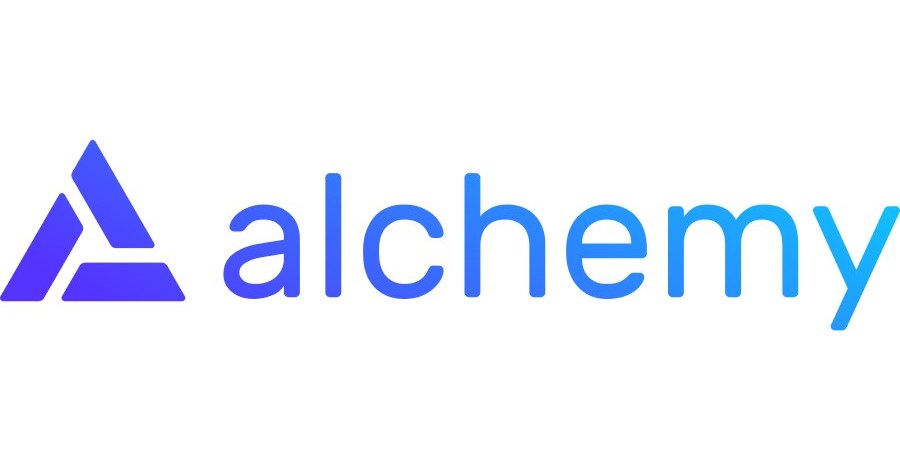
Alchemy’s suite of Web3 APIs includes tools like the NFT API, Transfer API, Transact API, and several others. These interfaces allow you to fetch on-chain data from multiple networks and use it to build everything from DeFi platforms to NFT marketplaces.
Alchemy supports multiple blockchains, including Ethereum, Polygon, Optimism, Base, etc. Consequently, it’s possible to build dapps across some of the most extensive networks in the Web3 space when working with Alchemy.
However, while Alchemy stands out as a viable API provider, it’s far from the best and might not be the optimal option for you. As such, in the following sections, we’ll explore the best Alchemy alternatives to give you a more nuanced view of the Web3 development space!
Top Alchemy Alternatives
There are multiple Alchemy alternatives available; however, in this guide, we’ll focus on two of the industry’s most prominent options:
- Moralis
- QuickNode
So, with no further ado, let’s dive straight into Web3’s leading API provider: Moralis!
Moralis
Moralis is the #1 API provider in the Web3 development space, helping businesses build greater user experiences, drive growth, and keep users engaged. The premier interfaces from Moralis currently power prominent blockchain projects – including MetaMask, Delta, and Blockchain.com – for millions of end users across the globe!

Moralis’ suite of development tools comprises a wide range of use case-specific Web3 APIs. Some prominent examples include the Wallet API, Token API, NFT API, Blockchain API, and many others. With these industry-leading development tools, you can seamlessly build everything from blockchain explorers to cryptocurrency wallets without breaking a sweat.
So, what exactly makes Moralis stand out from the competition?
- Comprehensive: Moralis’ Web3 API responses are all enriched with an abundance of data points, including transaction decodings, metadata, market data, address labels, and more from several sources. This way, we’re able to provide the industry’s most comprehensive APIs designed to minimize the number of calls you need to build Web3 projects.
- Simple: All Moralis’ Web3 API requests and responses adhere to the same structure and standard across all interfaces. This results in a seamless developer experience, giving you more time to focus on what’s really important – building a compelling user experience to create value and drive engagement for your dapps.
- Trusted: Hundreds of thousands of Web3 developers already use Moralis’ Web3 APIs. What’s more, Moralis’ interfaces currently power some of the biggest projects in the space, including MetaMask, Delta, and many others.
Did you know it’s possible to sign up with Moralis for free? Create an account now, and you’ll gain instant access to our industry-leading Web3 APIs!
QuickNode
QuickNode is a prominent blockchain infrastructure provider and Web3 development platform that stands out as a solid option among the best Alchemy alternatives. The platform provides a comprehensive toolset comprising nodes, SDKs, and APIs!
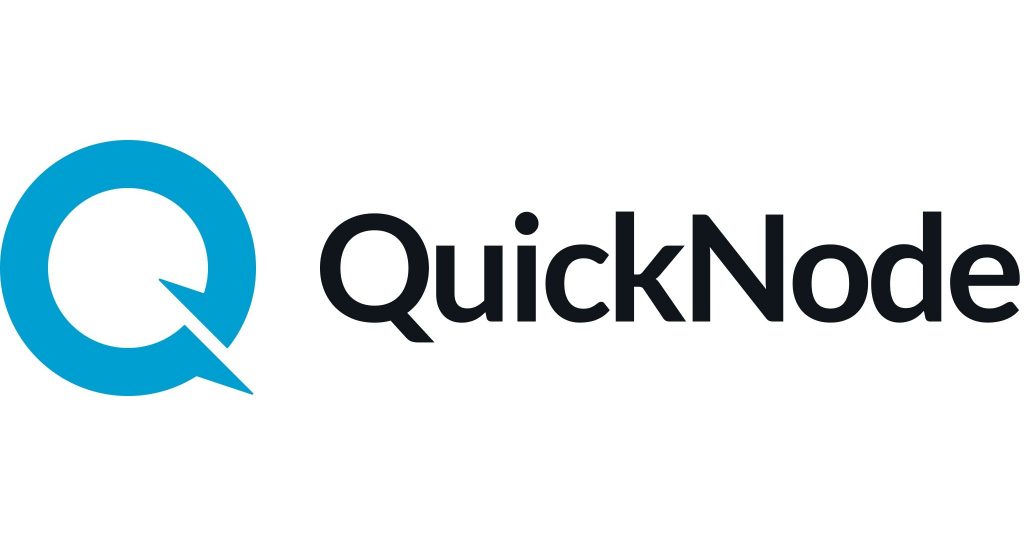
In QuickNode’s suite of Web3 APIs, you’ll find multiple interfaces. Some examples include the Core API, NFT API, and Token API. With the help of these tools, you can fetch the data you need to build platforms like token explorers, NFT marketplaces, portfolio views, etc.
What’s more, like both Moralis and Alchemy, QuickNode also supports a variety of blockchain networks, including Ethereum, Solana, Polygon, Optimism, and others. So, when using QuickNode, it’s possible to query multiple networks for important on-chain data.
That gives you an overview of the two best Alchemy alternatives. In the next section, we’ll compare the three to see how these Web3 API providers stack up!
Alchemy Alternatives: Moralis vs. Alchemy vs. QuickNode
To highlight the main differences between Moralis, Alchemy, and QuickNode, we used each provider’s blockchain APIs to fetch the data needed to build a portfolio view of Vitalik Buterin’s wallet. In this instance, a portfolio view includes the name, logo, price, and balance of all assets in the wallet.
This approach allowed us to systematically compare the efficiency, cost-effectiveness, and accessibility of Moralis, Alchemy, and Quicknode when it comes to fetching the same on-chain resources. Here’s a quick recap of the results:
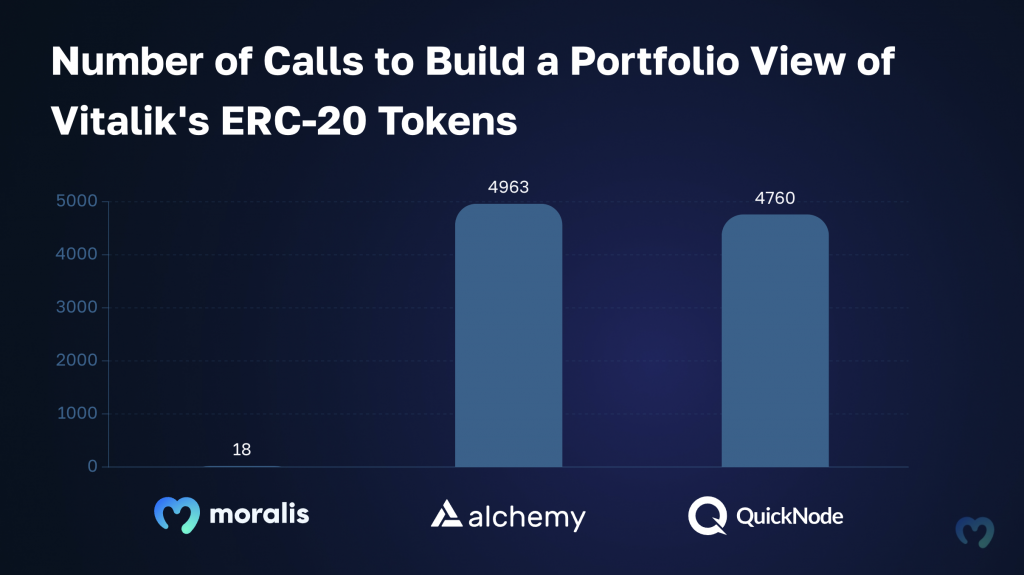
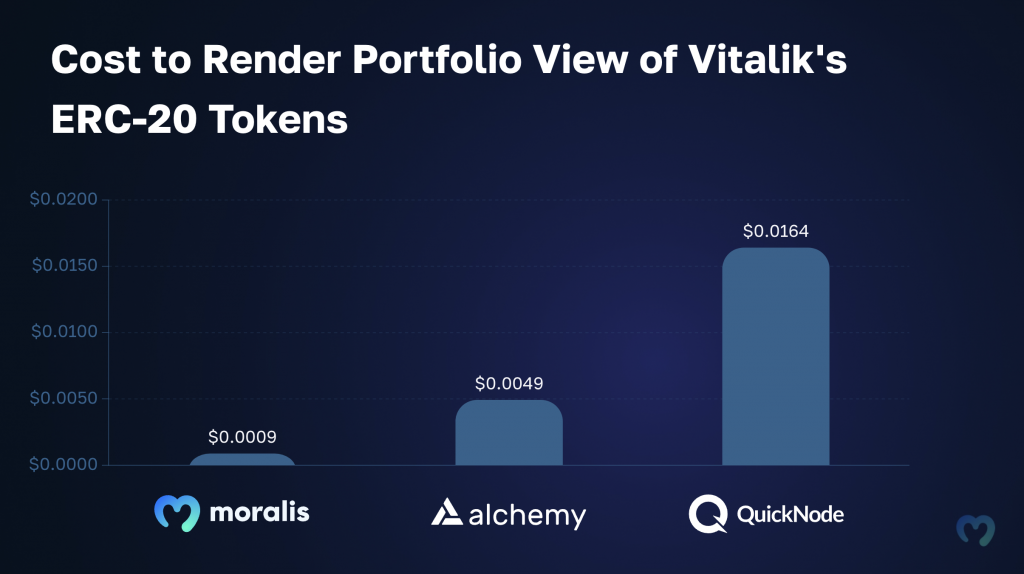
By quickly glancing over the charts above, you’ll notice that you only need 18 calls at a total cost of $0.000882 when using Moralis. In comparison, the same task demanded 4963 calls at a total cost of $0.0049189 with Alchemy. And 4760 calls at a total cost of $0.0163091 when using QuickNode.
But why are the results so drastically different?
Well, the secret lies in the comprehensiveness of Moralis’ Web3 APIs!
With both Alchemy and QuickNode, you must first call an endpoint to fetch the wallet’s token balances. Next, you need to call another endpoint for each token to get the metadata, which results in thousands of additional calls. Finally, you also need to use a third-party provider like CoinMarketCap to fetch the price data. But, when working with Moralis, you can get all the data you need from one single endpoint.
For a more in-depth breakdown of this and a closer look at the endpoints used during our test, please consider checking out this article: Comparing the Industry’s Leading Web3 API Providers.
While the comparison above focuses on portfolio data, the principles remain the same for all endpoints. As such, this clearly highlights how Moralis stands out as the industry leader in terms of accessibility, efficiency, and cost-effectiveness!
Best Alchemy Alternatives: Exploring Moralis’ Web3 APIs
As the leading option among the best Alchemy alternatives, we’ll now dive a bit deeper into Moralis. Specifically, we’ll explore three prominent Moralis blockchain APIs that can help you build greater user experiences, boost growth, and drive user engagement in your Web3 projects!
Also, if you wish to explore all our prominent development tools, please check out our official Web3 API page.
Token API
The Token API is the ultimate tool for ERC-20 data. This interface supports every token across all major chains, including stablecoins like USDT, meme coins like Shiba Inu, and everything in between!
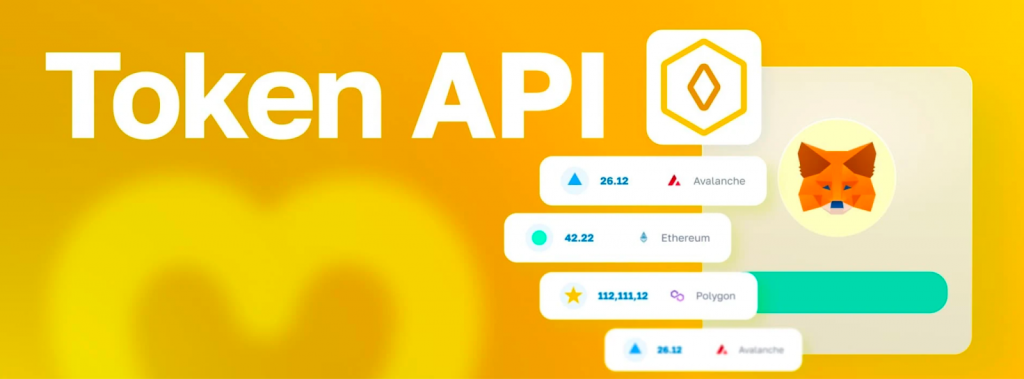
With the Token API, you can seamlessly query token balances, prices, metadata, transfers, and much more with single lines of code. As such, when using the Token API, you can seamlessly integrate token data into all your dapps without any trouble.
To showcase the benefits of working with Moralis, check out the simple script below, which we can use to get portfolio data for any wallet (this is the endpoint we used during our comparison before):
import fetch from 'node-fetch';
const options = {
method: 'GET',
headers: {
accept: 'application/json',
'X-API-Key': 'YOUR_API_KEY'
},
};
fetch('https://deep-index.moralis.io/api/v2.2/wallets/0xcB1C1FdE09f811B294172696404e88E658659905/tokens?chain=eth', options)
.then(response => response.json())
.then(response => console.log(response))
.catch(err => console.error(err));
Simply replace YOUR_API_KEY, configure the parameters, and run the script. In return, you’ll get an API response enriched with balances, market data, metadata, and much more:
{
//...
"result": [
{
"token_address": "0xa0b86991c6218b36c1d19d4a2e9eb0ce3606eb48",
"symbol": "USDC",
"name": "USD Coin",
"logo": "https://cdn.moralis.io/eth/0xa0b86991c6218b36c1d19d4a2e9eb0ce3606eb48.png",
"thumbnail": "https://cdn.moralis.io/eth/0xa0b86991c6218b36c1d19d4a2e9eb0ce3606eb48_thumb.png",
"decimals": 6,
"balance": "4553447",
"possible_spam": false,
"verified_contract": true,
"balance_formatted": "4.553447",
"usd_price": 1.001818879776249,
"usd_price_24hr_percent_change": 0.1818879776249283,
"usd_price_24hr_usd_change": 0.0018221880998897314,
"usd_value": 4.561729172660522,
"usd_value_24hr_usd_change": 0.008297236936878599,
"native_token": false,
"portfolio_percentage": 100
},
//...
]
}
Wallet API
Moralis’ Wallet API is the perfect tool for anyone looking to integrate wallet functionality into their dapps. This industry-leading tool supports over 500 million addresses across more than ten EVM blockchains, including Ethereum, Polygon, BNB Smart Chain, and many others!
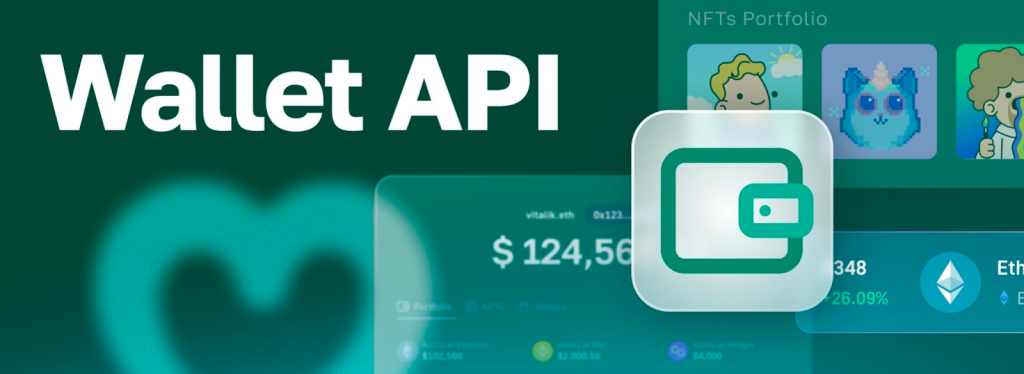
With single lines of code, you can use the Wallet API to fetch the net worth of any address, query token balances, get NFTs, and much more. Consequently, when utilizing Moralis, you can build everything from cryptocurrency wallets to portfolio trackers without breaking a sweat.
To highlight the accessibility of the Wallet API, check out the example below, where we use a single endpoint to get the net worth of any ERC-20 wallet:
import fetch from 'node-fetch';
const options = {
method: 'GET',
headers: {
accept: 'application/json',
'X-API-Key': 'YOUR_API_KEY'
},
};
fetch('https://deep-index.moralis.io/api/v2.2/wallets/0xd8da6bf26964af9d7eed9e03e53415d37aa96045/net-worth?chains%5B0%5D=eth&chains%5B1%5D=polygon&exclude_spam=true&exclude_unverified_contracts=true', options)
.then(response => response.json())
.then(response => console.log(response))
.catch(err => console.error(err));
All you have to do is replace YOUR_API_KEY, configure the address and chain parameters, and run the script. In return, you’ll get a response containing the total net worth of the wallet, along with values for each chain:
{
"total_networth_usd": "4286806.08",
"chains": [
{
"chain": "eth",
"native_balance": "1085515469813080189177",
"native_balance_formatted": "1085.515469813080189177",
"native_balance_usd": "3550067.16",
"token_balance_usd": "735008.04",
"networth_usd": "4285075.20"
},
{
"chain": "polygon",
"native_balance": "426857449018746625825",
"native_balance_formatted": "426.857449018746625825",
"native_balance_usd": "445.31",
"token_balance_usd": "1285.57",
"networth_usd": "1730.88"
}
]
}
Streams API
With Moralis’ Streams API, you can seamlessly set up streams to send customizable real-time updates to your projects’ backend via Web3 webhooks as soon as something important happens on-chain. The Streams API supports over 44 million contracts and all types of events, wallets, tokens, and more!
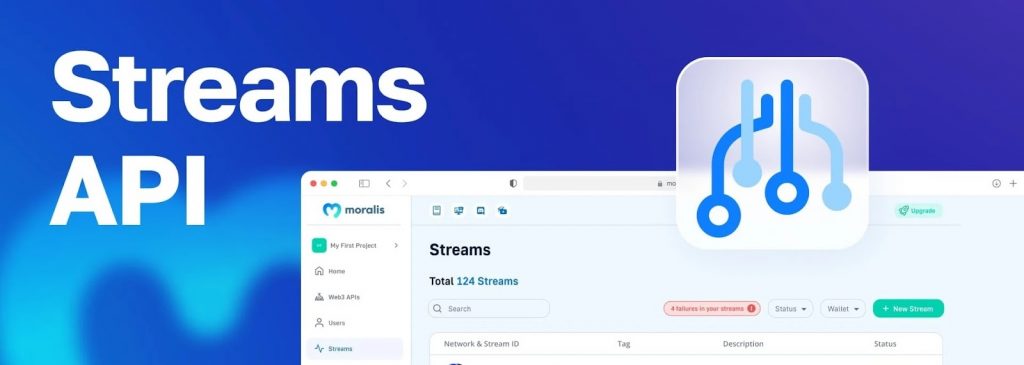
With the Streams API, you can effortlessly integrate Web3 alerts into your dapps. As such, it’s the perfect tool for driving more user engagement in your projects. So, whether you’re building a portfolio tracker, DEX, or any other platform, consider using the Streams API to improve the user experience of your dapp.
But how exactly does it work?
Well, you can set up a stream in three straightforward steps:
- Step 1 – Configure your stream by selecting the chains you wish to monitor, the events you want to listen for, and adding a webhook destination:
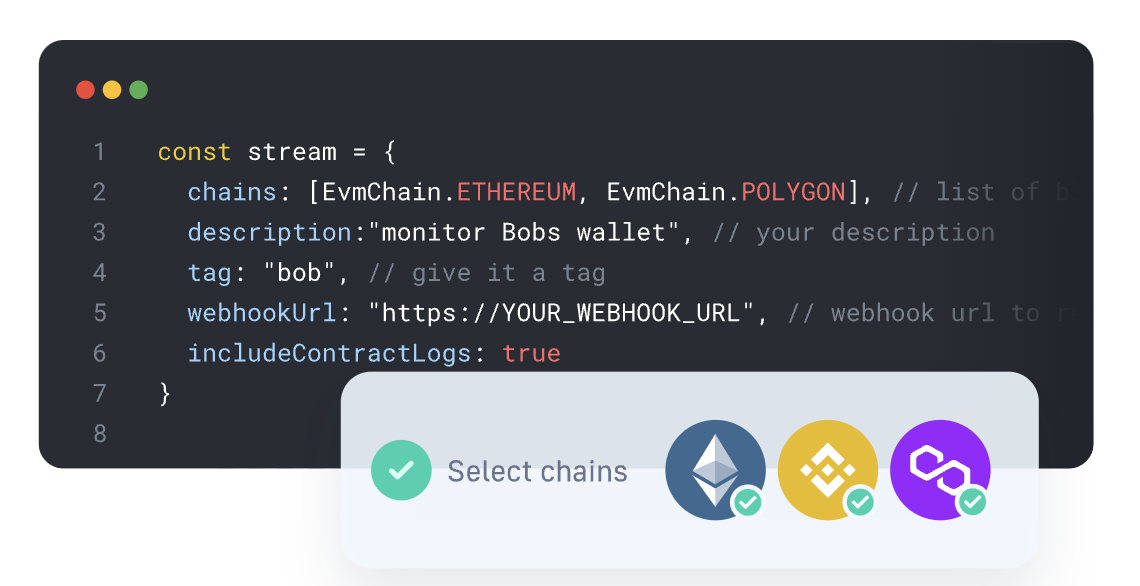
- Step 2 – Add your stream and get a test webhook in return:
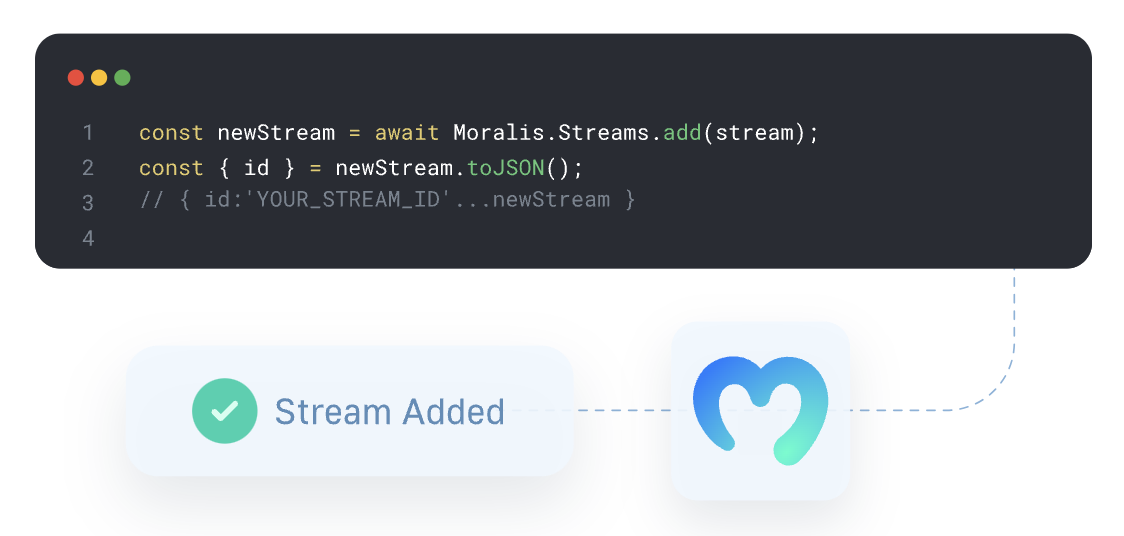
- Step 3 – Add one to 100 million addresses to your stream and watch the data roll in:
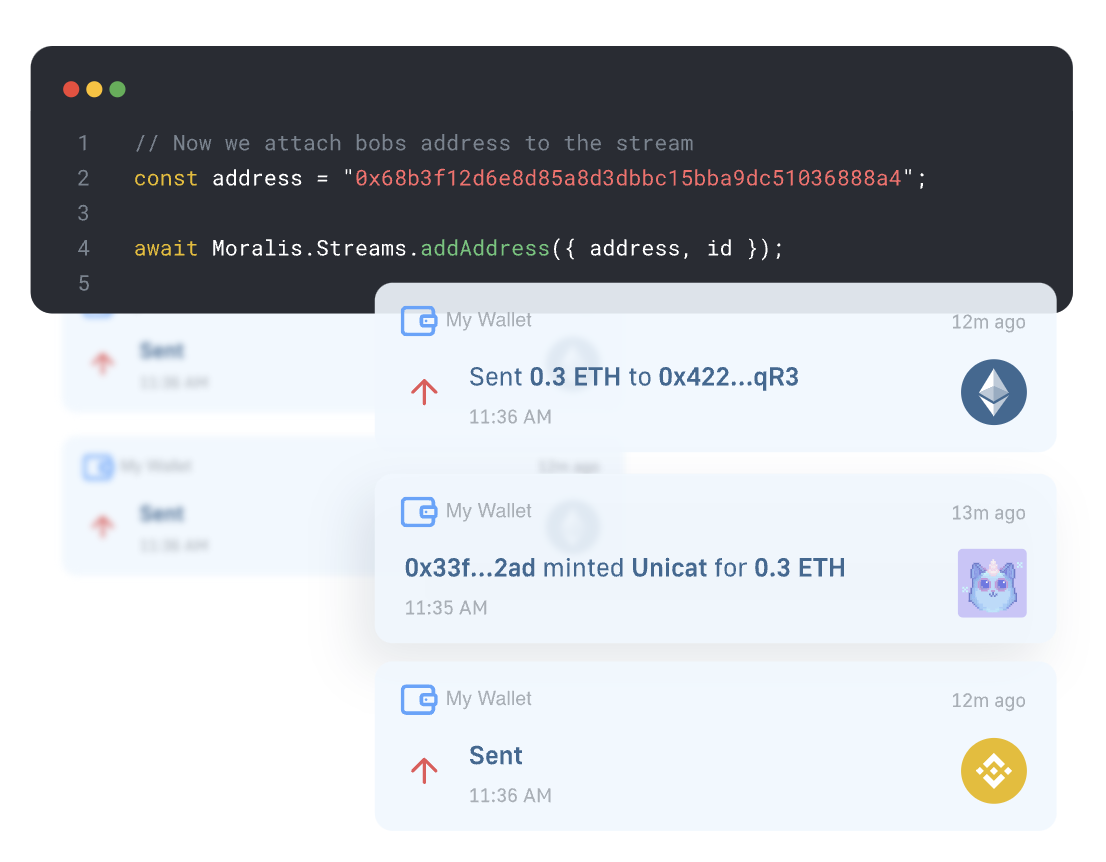
Check out our Streams API documentation page to learn more.
What Can You Build with Moralis?
With Moralis’ top-tier APIs, you can seamlessly query the data you need to build most Web3 projects. To give you a few examples, we’ll outline some prominent use cases below:
- Token Analytics: Token analytics tools are platforms that give users insight into the performance of cryptocurrencies and NFTs. These platforms can provide many features, such as portfolio tracking, token explorers, in-depth market analytics, etc. A great example of a tool using Moralis’ Web3 APIs is Moralis Money.
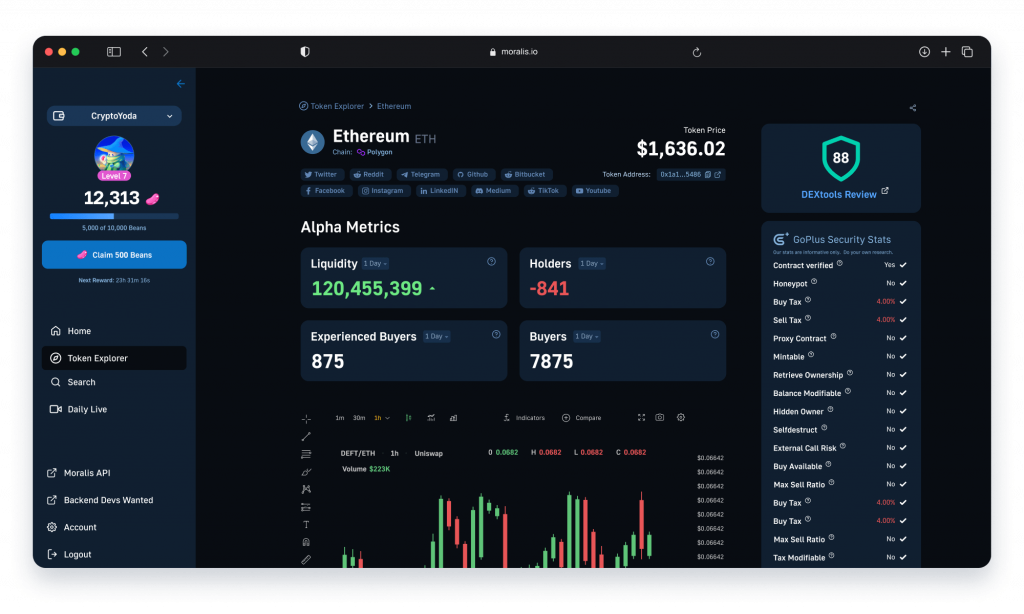
- Portfolio Trackers: Portfolio trackers are websites and applications that provide users with a clear overview of all their digital holdings. This includes everything from traditional stocks to cryptocurrency tokens. Delta – an industry-leading portfolio tracker – uses Moralis’ Why Did It Move API to keep its pro users engaged with explanations as to why the price of a token increases or decreases.
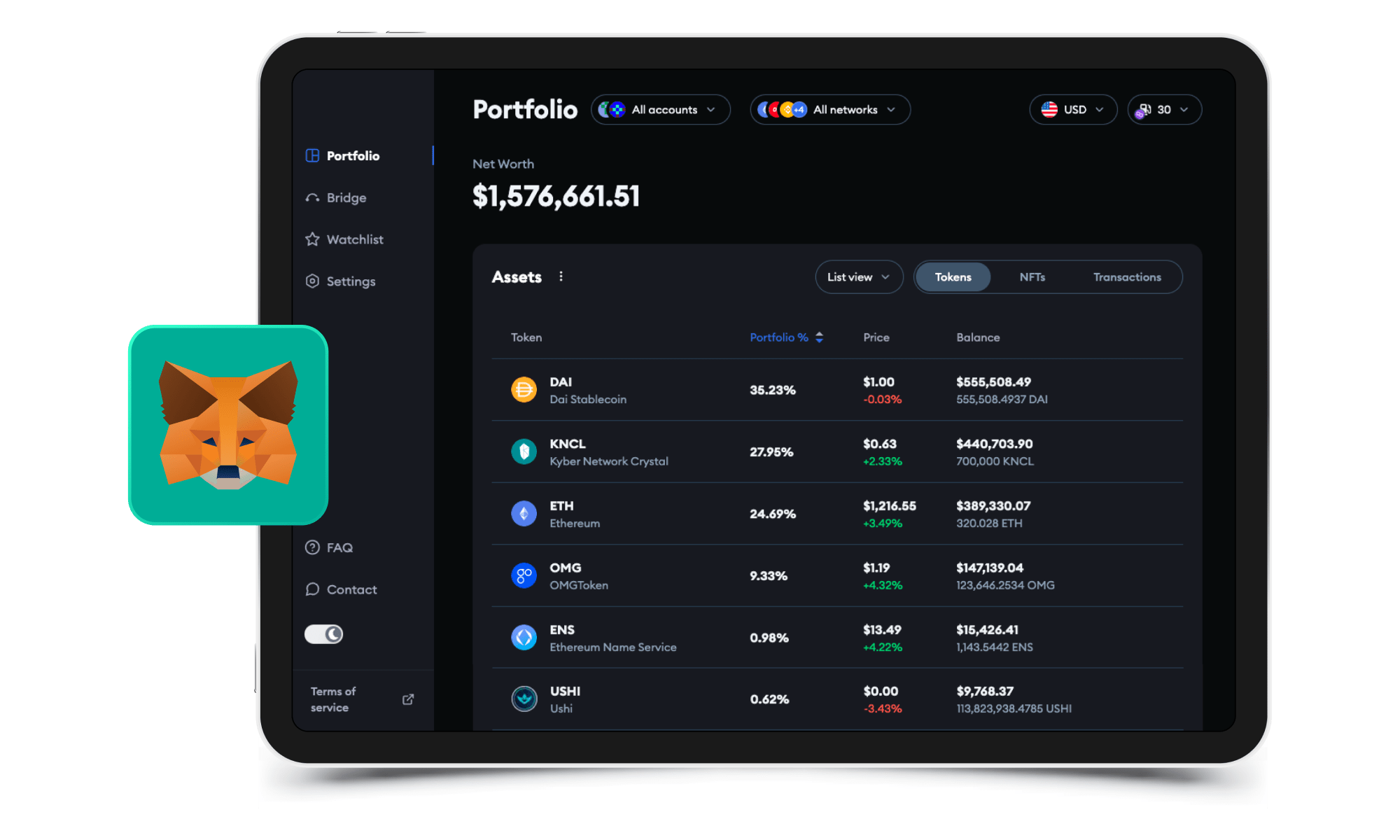
- Cryptocurrency Wallets: Cryptocurrency wallets are platforms for storing digital assets, including fungible tokens and NFTs. The best wallets also allow users to fully manage their holdings by providing functionality for selling, buying, and swapping tokens. MetaMask is an excellent example of a provider using Moralis’ Web3 APIs to get on-chain data.
Summary: Exploring the Top Alchemy Alternatives
While Alchemy is a prominent Web3 API provider within the space, it’s far from your best option. This is precisely why we took the time to explore two prominent Alchemy alternatives: Moralis and QuickNode. In doing so, we also compared Moralis, Alchemy, and QuickNode to see how these providers stack up against each other.

Through our comparison, we discovered that using Moralis requires fewer API calls to retrieve on-chain data compared to other competitors. The reason for this is the comprehensiveness of Moralis’ Web3 API responses, which give you all the data you need to, for instance, build a portfolio view with one single endpoint. As such, when working with Moralis, you can create projects more easily, faster, and cost-efficiently!
Also, did you know you can sign up with Moralis free of charge? So, if you haven’t already, create an account and start leveraging the industry’s #1 Web3 APIs today!
